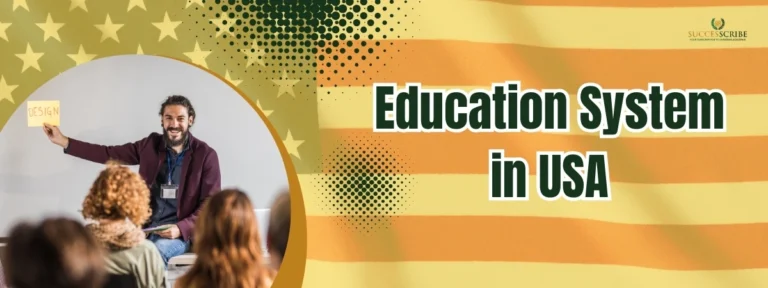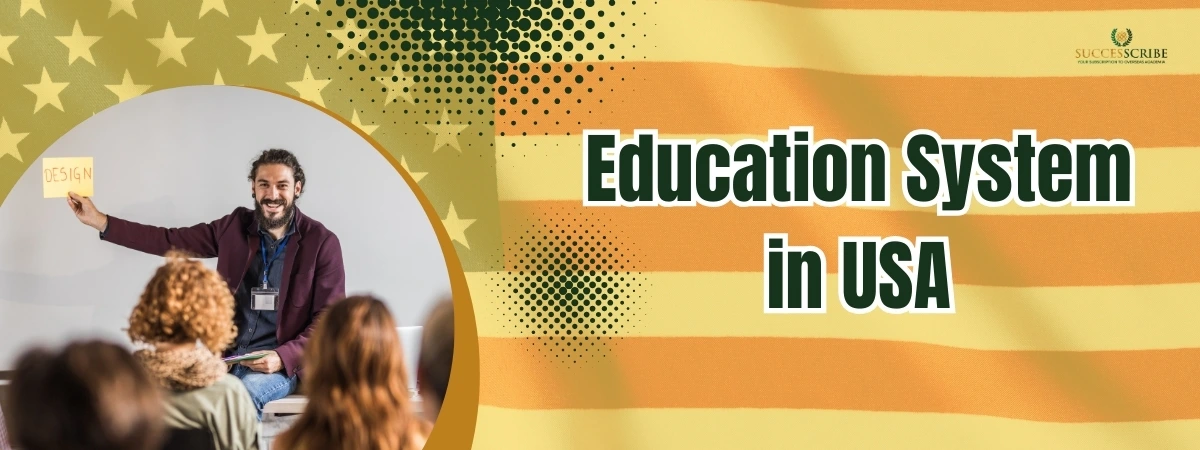Germany provides a diverse array of scholarships for PhD students, funded by governmental bodies, research institutions, and private foundations. These scholarships often cover tuition fees, living expenses, research costs, and sometimes even travel allowances. Scholarships for PhD in Germany are widely available through government bodies, universities, and private foundations, offering financial support to help international students pursue advanced research. The German Academic Exchange Service (DAAD) is one of the most prominent organizations offering such scholarships, alongside other notable institutions.
Types of Scholarships for PhD in Germany

Scholarships and funding for PhD students in Germany come in various forms. Understanding the different types of scholarships for PhD in Germany, ranging from fully funded programs to research assistantships, can help applicants choose the right funding path for their academic goals.
1. Fully Funded Scholarships
Fully funded scholarships cover tuition (if any), living expenses, health insurance, travel allowances, and sometimes even research costs. These scholarships aim to allow students to fully focus on their research without financial worries.
Examples: DAAD Research Grants, Heinrich Böll Foundation Scholarships, Friedrich Ebert Foundation Scholarships.
2. Partial Scholarships
Some scholarships provide partial funding, such as a monthly stipend but not covering tuition fees or travel expenses. Students may need to supplement their income through part-time work or other grants.
Examples: Some university-specific scholarships or departmental funding.
3. Research Assistantships & Doctoral Positions
Many universities and research institutions offer funded PhD positions where the candidate is employed as a research assistant. This role provides a salary, health insurance, and social security benefits.
Examples: Positions advertised via university job portals or research clusters.
4. External Funding (Government & Private Foundations)
In addition to university funding, international and national organizations provide scholarships for doctoral candidates in Germany.
Examples: DAAD (German Academic Exchange Service), Alexander von Humboldt Foundation, Konrad Adenauer Foundation.
Suggested Post: Scholarships for undergraduates in Germany
Major Scholarships for PhD in Germany You Should Know

The following table outlines some of the most recognized scholarships for PhD in Germany, highlighting stipends, duration, and eligibility details.
1. DAAD Research Grants
| Field | Details |
| Monthly Stipend | €1,300 (plus travel allowance, health insurance, research allowance) |
| Duration | 3 months to 4 years |
| Additional Benefits | Travel allowance, insurance, rent subsidy, family allowances |
| Eligibility | Master’s degree holders, recent graduates (within 6 years), PhD proposal |
| Language Requirements | English or German |
| Special Requirement | Solid research proposal, invitation letter from German supervisor |
| Application Deadline | Varies by country, generally Oct–Nov (consult local DAAD office) |
2. Heinrich Böll Foundation Scholarships
| Field | Details |
| Monthly Stipend | €1,200 + €100 book allowance |
| Duration | Up to 3 years |
| Additional Benefits | Health insurance, mentoring, networking programs |
| Eligibility | High academic record, social engagement, enrolled in a German university |
| Language Requirements | German (mandatory, at least B2) |
| Special Requirement | Political/social commitment, sustainability orientation |
| Application Deadline | Twice yearly: March 1 & September 1 |
3. Konrad-Adenauer-Stiftung (KAS) Scholarships
| Field | Details |
| Monthly Stipend | €1,200 |
| Duration | Up to 3 years |
| Additional Benefits | Family allowance, insurance, seminars |
| Eligibility | Academic excellence, political/social involvement, leadership skills |
| Language Requirements | German (at least B2 required) |
| Special Requirement | Active participation in KAS seminars, political orientation (CDU values) |
| Application Deadline | July 15, 2025 |
4. Deutschland Stipendium
| Field | Details |
| Monthly Stipend | €300 |
| Duration | 1 year (renewable) |
| Additional Benefits | Mentoring programs, networking events |
| Eligibility | High academic achievement, social commitment, enrolled at a German university |
| Language Requirements | German or English (depending on university) |
| Special Requirement | Application through the respective university |
| Application Deadline | Varies by university |
5. Friedrich Ebert Stiftung Scholarships
| Field | Details |
| Monthly Stipend | €1,200 |
| Duration | Up to 4 years |
| Additional Benefits | Seminars, academic networking, travel/research grants |
| Eligibility | Social/political engagement, excellent academics |
| Language Requirements | German (recommended, B2 preferred) |
| Special Requirement | Strong commitment to democratic/social values |
| Application Deadline | October 31, 2025 for Winter semester; April 30, 2025 for Summer semester |
6. Erasmus Scholarship Programs
| Field | Details |
| Monthly Stipend | Varies by program |
| Duration | 1 to 2 years |
| Additional Benefits | Travel allowance, insurance, tuition coverage |
| Eligibility | Bachelor’s degree holders, admission to Erasmus Mundus Joint Master Degree programs |
| Language Requirements | English (minimum B1), some programs may require higher proficiency |
| Special Requirement | Admission to a participating Erasmus Mundus program |
| Application Deadline | Varies by program; generally between October and January for courses starting the following academic year |
7. Rosa Luxemburg Stiftung
| Field | Details |
| Monthly Stipend | €1,350 |
| Duration | 2–3 years |
| Additional Benefits | Research and travel grants, mentorship |
| Eligibility | High academic achievement, socio-political involvement |
| Language Requirements | German (mandatory) |
| Special Requirement | Gender, racial, or disability background considered positively |
| Application Deadline | October 1, 2025 |
8. Alexander von Humboldt Foundation Fellowships
| Field | Details |
| Monthly Stipend | €2,670 – €3,170 |
| Duration | 6 to 24 months |
| Additional Benefits | Family allowance, travel support, alumni sponsorship |
| Eligibility | Postdoctoral researchers, internationally recognized PhD |
| Language Requirements | English or German |
| Special Requirement | Must secure a host research institution in Germany |
| Application Deadline | Rolling application (review every March, July, November) |
9. Max Planck Society PhD Positions
| Field | Details |
| Monthly Stipend | €2,200+ (contract-based salary) |
| Duration | 3–4 years |
| Additional Benefits | Structured training, lab rotations, travel grants |
| Eligibility | Bachelor/Master’s in relevant science field |
| Language Requirements | English (mandatory) |
| Special Requirement | Apply directly to Max Planck International PhD programs |
| Application Deadline | Varies by institute; for example, August 1, 2025 for certain programs |
10. German Cancer Research Center (DKFZ)
| Field | Details |
| Monthly Stipend | €2,800 (TVöD contract) |
| Duration | 3 years |
| Additional Benefits | Career mentoring, research travel, international exposure |
| Eligibility | Master’s in life sciences, medicine, or equivalent |
| Language Requirements | English |
| Special Requirement | Interview rounds; competitive intake through DKFZ International PhD Program |
| Application Deadline | December 15, 2025 |
11. Boehringer Ingelheim Fonds (BIF)
| Field | Details |
| Monthly Stipend | €2,100 + allowances |
| Duration | Up to 3 years |
| Additional Benefits | Travel, family, and research expenses |
| Eligibility | PhD in biomedical field in Europe |
| Language Requirements | English |
| Special Requirement | Must start PhD less than 6 months before or after application |
| Application Deadline | 3 annual deadlines: February 1, June 1, October 1 |
12. DBU – German Federal Environmental Foundation
| Field | Details |
| Monthly Stipend | €1,500 |
| Duration | Up to 3 years |
| Additional Benefits | Research cost support, workshops, conferences |
| Eligibility | Research in environmental sciences |
| Language Requirements | German (preferred), English accepted |
| Special Requirement | Environmental relevance must be central to PhD project |
| Application Deadline | January 15 and June 15 each year |
13. Marie Skłodowska-Curie Actions
| Field | Details |
| Monthly Stipend | €3,270 (living allowance) + mobility and family allowances |
| Duration | 1 to 3 years |
| Additional Benefits | Research funding, training, networking opportunities |
| Eligibility | Researchers of any nationality, with a doctoral degree or at least four years of full-time research experience |
| Language Requirements | English or language of host institution |
| Special Requirement | Must undertake transnational mobility — relocating to Germany from another country, or returning under specific conditions; no residence in host country for more than 12 months in last 3 years |
| Application Deadline | Usually annual; varies by specific calls but typically April to September (check yearly calls) |
14. Fraunhofer Society Scholarships
| Field | Details |
| Monthly Stipend | Based on work contract (€2,300–€2,800/month) |
| Duration | 3 years |
| Additional Benefits | Work-integrated research, industry collaborations |
| Eligibility | STEM Master’s students with research background |
| Language Requirements | English or German |
| Special Requirement | Must apply through specific Fraunhofer Institutes |
| Application Deadline | Varies by institute and project |
15. Studienstiftung des deutschen Volkes (German Academic Scholarship Foundation)
| Field | Details |
| Monthly Stipend | €1,450 |
| Duration | Usually 3 years |
| Additional Benefits | Travel allowance, research funding, retreats |
| Eligibility | Top academic record, civic commitment, invitation by professor or institution |
| Language Requirements | German (mandatory for full participation) |
| Special Requirement | Nominated by German professors or partner institutions |
| Application Deadline | June each year |
Suggested Post: Scholarships for Masters in Germany
Eligibility Criteria for PhD Scholarships in Germany
While specific criteria depend on the scholarship, to qualify for scholarships for PhD in Germany, candidates typically need a master’s degree, a strong academic background, and a well-structured research proposal.
- Academic Qualifications: Usually, a master’s degree or equivalent is required before applying for a PhD scholarship.
- Research Proposal: Most scholarships require a detailed, well-structured research proposal aligned with German research priorities or your host university’s focus.
- Language Proficiency: Proficiency in English or German is often required. Some scholarships require a language test score (TOEFL, IELTS, TestDaF).
- Nationality: Some scholarships target specific nationalities or regions, while others are open worldwide.
- Age Limits: Some programs have age restrictions, often around 35-40 years old.
- Academic Excellence: High GPA or grades, research experience, publications, or academic awards improve chances.
Universities and Research Institutes Offering PhD Scholarships
Many German universities offer internal scholarships or advertise external scholarship opportunities:
- Technical University of Munich (TUM)
- Heidelberg University
- LMU Munich
- Freie Universität Berlin
- RWTH Aachen University
- University of Freiburg
- Max Planck Institutes (offer doctoral fellowships through their graduate schools)
- Helmholtz Graduate Schools
Candidates should regularly check university websites and graduate school portals.
Top 10 German Universities with the Highest Number of International PhD Scholars

These institutions are renowned for their research facilities and international collaborations. These top-ranked institutions not only lead in international research but also award a significant number of scholarships for PhD in Germany.
| Rank | University | No. of Intl. PhD Students |
| 1 | Technical University of Munich (TUM) | 2,400+ |
| 2 | Heidelberg University | 2,100+ |
| 3 | LMU Munich | 2,000+ |
| 4 | RWTH Aachen University | 1,800+ |
| 5 | Freie Universität Berlin | 1,700+ |
| 6 | Humboldt University of Berlin | 1,600+ |
| 7 | University of Freiburg | 1,300+ |
| 8 | University of Göttingen | 1,200+ |
| 9 | Karlsruhe Institute of Technology (KIT) | 1,100+ |
| 10 | University of Bonn | 1,000+ |
Application Process for PhD Scholarships in Germany
The application process for scholarships for PhD in Germany involves researching suitable programs, securing a supervisor, and preparing comprehensive documentation.
Step 1: Identify Suitable Scholarships
Research thoroughly on scholarship databases like the DAAD Scholarship Database, university websites, and foundation portals.
Step 2: Find a Supervisor or PhD Program
For most PhD scholarships in Germany, securing a supervisor or admission to a research program is essential. Contact professors or research groups related to your field.
Step 3: Prepare Required Documents
Commonly required documents include:
- Curriculum Vitae (CV)
- Research proposal or statement of purpose
- Academic transcripts and certificates
- Letters of recommendation (usually 2-3)
- Proof of language proficiency
- Passport copy
- Publications or work samples (if applicable)
Step 4: Submit Online Application
Many scholarships require online submission through their portals. Pay close attention to deadlines and instructions.
Step 5: Interview or Additional Screening
Some foundations or universities conduct interviews or request further documents after initial screening.
Suggested Post: Scholarships for Indian students in Germany
Top Research Fields for PhD Scholarships in Germany

Engineering, natural sciences, and medicine are among the top-funded areas for scholarships for PhD in Germany, reflecting the country’s research priorities.
| Field | % of Funded PhDs |
| Engineering & Technology | 28% |
| Natural Sciences | 26% |
| Medicine & Health | 15% |
| Social Sciences | 12% |
| Humanities | 10% |
| Agricultural Sciences | 5% |
| Others | 4% |
Benefits of PhD Scholarships in Germany
Scholarships for PhD in Germany offer comprehensive benefits including monthly stipends, research support, travel grants, and often health insurance coverage.
- Financial Support: Monthly stipend to cover living expenses (usually €1,000–€1,500 per month).
- Health Insurance: Many scholarships cover or assist with health insurance costs.
- Travel Grants: For attending conferences or research-related travel.
- Research Funding: Some provide allowances for equipment, materials, or publication fees.
- Networking & Career Support: Access to mentoring, seminars, and alumni networks.
- Visa Facilitation: Scholarship award letters support visa applications.
- No Tuition Fees: Scholarships are often combined with no tuition fees at public universities.
Tips to Secure a PhD Scholarship in Germany
Here are some tips to secure a scholarship for PhD in Germany.
- Start Early: Scholarship deadlines can be months before the intended start date.
- Strong Research Proposal: Tailor your proposal to align with German research priorities or your supervisor’s interests.
- Contact Potential Supervisors: Establish contact with professors early, discuss your research ideas, and seek their support.
- Prepare Documents Carefully: Ensure all documents are translated into English or German, error-free, and professionally formatted.
- Demonstrate Motivation and Fit: In your statement of purpose, explain why Germany is the right place, how the scholarship fits your goals.
- Highlight Academic Excellence and Soft Skills: Emphasize publications, research experience, teamwork, and leadership.
- Apply to Multiple Scholarships: Increase your chances by applying for several funding opportunities.
Challenges and How to Overcome Them
Here are the Challenges and the solutions to secure a Scholarship for PhD in Germany
- Competition: PhD scholarships in Germany are highly competitive. Networking and strong academic credentials help.
- Language Barriers: Some programs require German; investing time in learning German improves integration and chances.
- Finding Supervisors: Some candidates struggle to find professors willing to supervise international candidates. Persistence and wide outreach help.
- Documentation: Gathering and translating official documents can be time-consuming; plan ahead.
- Visa Procedures: Early application for a student visa is crucial; scholarship award letters ease this process.
Conclusion
In conclusion, scholarships for PhD in Germany provide international students with an incredible opportunity to pursue world-class research without the burden of tuition or high living costs. Germany offers abundant opportunities for international PhD students through various scholarship schemes. With tuition-free education at public universities, strong research infrastructure, and attractive funding options like DAAD and Humboldt fellowships, Germany is a top destination for doctoral studies.
Success in securing a scholarship requires careful preparation, a strong research proposal, early planning, and determination. Candidates are encouraged to leverage available resources, seek guidance, and apply widely. With the right approach, funding a PhD in Germany can become an achievable goal, opening doors to an exceptional academic and professional future.
FAQs
What are the best scholarships for PhD in Germany for international students?
Some of the top scholarships for PhD in Germany include the DAAD Research Grants, Heinrich Böll Foundation Scholarships, Friedrich Ebert Stiftung, and Alexander von Humboldt Fellowships.
Are PhD scholarships for Germany fully funded?
Yes, many scholarships for PhD in Germany are fully funded and cover living expenses, research costs, health insurance, and sometimes travel allowances.
What are the eligibility criteria for PhD scholarships for Germany?
Typically, you need a completed Master’s degree, a strong academic record, a well-structured research proposal, and proof of language proficiency in English or German.
How competitive are PhD scholarships for Germany?
Scholarships for PhD in Germany are highly competitive due to the country’s global reputation in research. A strong application with academic excellence and research potential is essential.
What is the monthly stipend offered by scholarships for PhD in Germany?
The monthly stipend varies by program, typically ranging between €1,200 and €3,000 depending on the funding body and scholarship type.
Related Post
Heidelberg University admission requirements
University of Hamburg admission requirements
University of Freiburg admission requirements
Freie University of Berlin admission requirements















